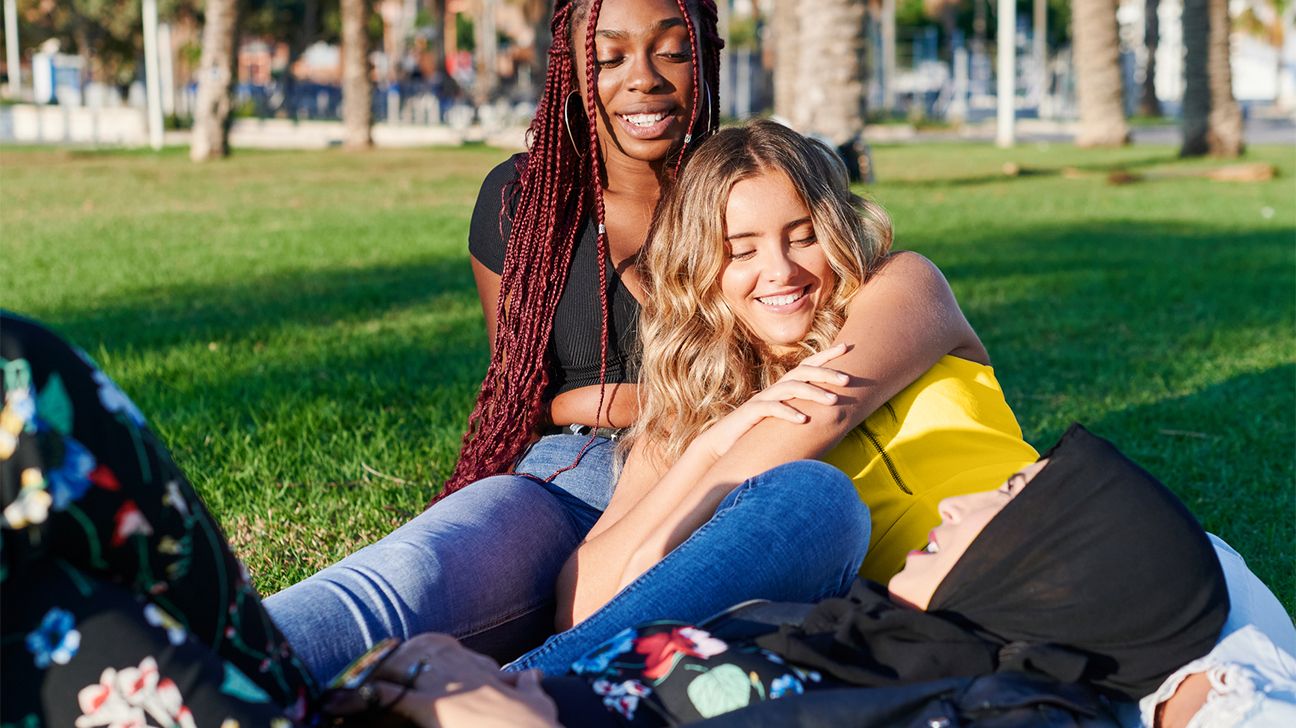
In many cultures, learning to drink — well and responsibly — is a rite of passage that marks the transition from adolescence into true adulthood.
But for some people, growing up means realizing that alcohol shouldn’t be a part of one’s life at all.
According to the National Institute of Health, more than 14 million Americans have an alcohol use disorder, while Alcoholics Anonymous estimates more than 1.3 million Americans in its community.
And for those who’ve given up booze, socializing can be awkward and isolating. “When I first quit drinking, I felt like the only person my age on the planet who was opting out of booze,” says Alex, 31, who’s been in recovery for several years. “My friend group at the time socialized in a way that centered almost entirely around drinking activities. It made me feel so alone.”
That’s why it’s up to us — the drinkers — to be considerate of our sober pals. Here are some important things you can do to be a supportive friend.
There’s no need to draw attention to what a person is or isn’t drinking. Period. “Simply don’t bring up me not drinking unless it’s directly relevant,” says Sean, 36, who’s in recovery.
Similarly, avoid making overdramatic comments that might make a person feel singled out. “I’ll occasionally hear ‘It’s not your birthday without booze!’ or ‘It’s not New Year’s without champagne!’” says Alex. “It’s most certainly still New Year’s if all you’ve got is Martinelli’s. Come on, people.”
Alex also stresses that it’s perfectly polite to ask once if a nondrinking friend minds you drinking in front of them, but don’t keep asking if they’re “sure.”
Some people in recovery may feel comfortable being around booze, or even going to bars and clubs. Some prefer to avoid it entirely. Ultimately, let nondrinkers make that decision for themselves.
“If you are doing a booze-related event, please send me an invitation anyway and let me decide if I’m up for that — being excluded is no fun, either,” says Alex.
And if you’re having a party or a dinner, have some nonalcoholic beverages on hand that you know your sober friends like. If you’re unsure, shoot them a text when you’re out shopping to see if there’s anything they’d like you to pick up. They’ll appreciate the consideration.
Consider how much alcohol dictates your activities. Going to wine tasting after wine tasting as a nondrinker is likely to get old fast, so consider mixing up your outings with other activities as well.
“I don’t mind when people around me drink,” says Sean, “but sometimes it’s nice to hang out with my friends when they aren’t drinking.”
Sean also adds that sober hangouts are better when you don’t make a big deal of the fact that you are doing it on purpose. Like we said earlier, don’t make it weird.
Alex enjoys going to bars with her friends, but she finds that the NA options usually range from OK to downright gross. “It’s usually one that tastes so bad, I’d rather just drink water,” she says. “If ‘regular’ bars started carrying more (or, better) nonalcoholic options, socializing while sober would be a million times easier!”
But for some recovering alcoholics, these NA substitutes, even outside of bar and club settings, are too triggering. “Nonalcoholic beer and cocktails are an unnecessary risk,” says Sean. “The culture around it can be dangerously close to craft beer or cocktail culture too.”
Point being: No two nondrinkers are going to be exactly the same. Always ask, rather than assume, what your sober friends are interested in and comfortable drinking.
Even if your nondrinking friends have told you they don’t mind being around people who are drinking, they might not want to hear you reminisce about the time you won a drinking contest. Fetishistic talk about drinks and drinking, or excessive drunkenness, can be annoying to witness or worse, distressing, for someone who’s in recovery.
It’s a matter of putting yourself in their shoes to consider to how your words and actions might affect them. If they tell you outright something is making them uncomfortable, simply apologize and change subjects.
Remember your basic manners. If a close friend is comfortable talking about their history with substances, that’s one thing. But we beg of you, don’t ask a casual acquaintance personal questions after they share that they’re in recovery.
Alex urges people to especially avoid asking nondrinkers about their rock bottoms or wild stories. “This information is none of your business. If I want to share it with someone, I will, but otherwise, asking questions like that is presumptuous and tactless.”
If you’re doing a dry January or skipping booze as part of a health regimen, don’t automatically assume that you know what a person in recovery is experiencing.
In fact, Michael Cartwright, Co-Founder and Chairman of the Board of American Addiction Centers, cautions that the “sober curious” label — a recent wellness trend — may come off as dismissive or even disrespectful to those overcoming addiction.
“If someone chooses to not drink to support a healthier lifestyle, I think that’s a great thing. But why call that ‘sobriety’ when you are not dealing with a disease?” he says. “For about 8 percent of the population with the brain disease of addiction, sobriety is part of a life-long recovery journey.”
Keep in mind that for people who have an alcohol use disorder, abstaining from alcohol can be incredibly difficult — even if they’ve been sober for years.
“Sobriety is not something to be taken lightly and we should be careful not to diminish its significance,” says Cartwight.
Ariana DiValentino is a writer, filmmaker, and actor based in Los Angeles. Follow her on Twitter.

